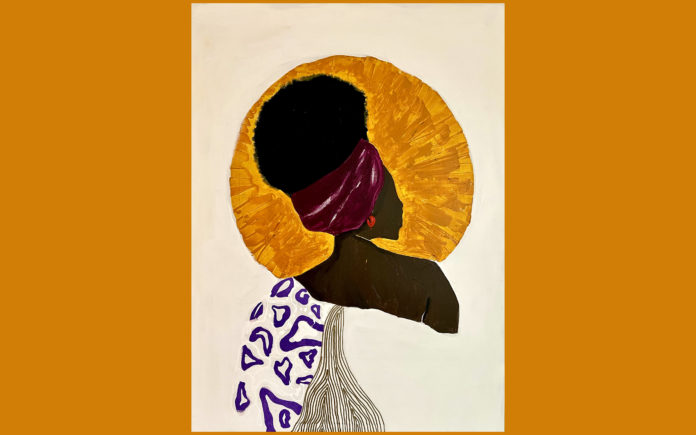

Nigerian hyper-realistic artist Jola Adeniji features Black women in the portraits that will be displayed at his upcoming art series “Diary of a Mad Black Woman.”
His series is being displayed at the Charlotte Street Arts Centre and will be open from March 17 to 18.
Adeniji said he has felt like an artist since he was a child, always delighting in “anything artistic.”
His process is spontaneous.
“I find that I am never ready,” said Adeniji. “I’m just going through with the process and enjoying the flow and learning everything that I have to learn.”
His portraits feature African women: one woman has her hair in an updo of lush knots, one is a dancer with arched brows and intricate red earrings, another is statuesque with big hair and a finger against her red lips.
“The regular Black woman that you see is just not ordinary,” said Adeniji. “She has experiences; she has seen life.”
Adeniji described the inspiration for his art series as observations of Black women across cultures going “all out” to improve their lives and overcome challenges. He considers such willpower to be emblematic of Black women.
“It’s the passion for me, the drive and the motivation that really strikes me,” said Adeniji. “Who is a mad black woman? What is she all about?”
He told the story of a Nigerian woman he met who lost everything after her husband died. Her in-laws seized her husband’s property after his death, leaving her to fend for herself and four children.
She moved to the United Kingdom to start a new life. She started working as a cleaner. She encountered harrowing racism during that time.
“A woman, a white woman, passed her and said, ‘What are you doing here, black monkey?’ and spat on her, and said ‘go back to your country,'” said Adeniji recalling one of the incidents of that racism towards her.
Slowly, she taught herself to sew and began crafting small goods to sell at local festivals. Her sewing bloomed into a fashion industry.
“The fact that people hated on her, the fact that her extended family on her husband’s side took everything from her, the fact that her children were suffering … no one could understand what she was feeling,” said Adeniji. “Those threats from other people … fuelled her passion and really drove her ‘mad.’”
He explained that “mad” refers to “a good angry,” meaning to hunger, to aspire and problem-solve.
Adeniji hopes that his art encourages Black women to appreciate their own experiences and take a rest.
“No matter how crazy you are, no matter how mad you are, you also just want to rest. [The art is] an opportunity to say ‘look, you’ve been doing good’ or ‘you can keep going.’”
